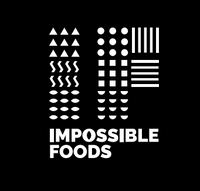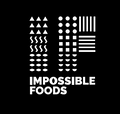Breaducation
Skills and Expertise Requirements:
- Multitasking skills: Balance flavor, texture, and nutrition like a true culinary surgeon.
- Healing touch: Nourish and restore our bodies with essential nutrients.
- Emergency response: Provide quick, tasty sustenance during hunger emergencies.
- Surgical precision: Slice through our cravings without sacrificing nutrition.
- Empathy: Understand our dietary needs and cater to our taste buds.
Just like a skilled surgeon, we want our bread to be precise, nourishing, responsive, versatile, and compassionate, ensuring our health and happiness as the number one priority.
After all. Who wants a doctor that' doesn't give a f***.
Picture this: two brilliant surgeons, Milk and Curd, performing their magic in the operating room.
At first glance, you might think they're identical since they share the same raw material.
But Dr. Curd, with her dahi culture starter, works her surgical miracles, turning milk into something entirely different.
Imagine, if it weren't that different, we'd be sipping milk when our tummies rebelled—now that wouldn't be a bellyful of laughs!
Now, let's get to the bread of the matter. Here comes Dr. Sourdough, a masterful surgeon, taking the raw grains and conducting a mind-blowing metamorphosis. It's like the dahi of the bread world.
Just like dahi is to milk, sourdough is to bread—a magical, surgical journey with deliciously digestible results.
We agree. In an ideal world we shouldn't have to care about bread or any of the food we eat. It should just do its job and nourish us. But welcome to reality.
In 'our world' caring about what you eat is like making sure your doctor graduated from medical school (you wouldn't want a self-proclaimed "doctor" operating on you, right?).
Sourdough has been making making grains easy on your digestion for 15,000 years. Ignore it, and your body will stage a full-blown revolt ( because with out it you get bread that hurts).
Give your body care and it will treat you like royalty. Treat it like a trash heap - and well, you'll get no refunds, no warranty, and definitely no guarantees. Just a ticking time bomb!
Freshly ground grains: the nutritional VIPs. Our flours? Freshly milled every few weeks, keeping it real.
Because, seriously, who wants calories without the nutrients? No one's signing up for empty-calorie parties or frequent doctor visits.
Back in the day, when everything was organic, no fuss. Now, going organic is like sending a doctor to check on our planet's pulse.
Be a hero – buy organic for a gentler tomorrow
For 20,000 years, humans ate whole grains – that's what our bodies were designed to eat.
Then, in the last 100 years (0.5% of our grain-eating time), we went wild for refined grains. That's like going from couch potato to Olympic athlete in a week – not a great idea, body-wise. Chew on that.
Whole grains are the wise elders of the pantry. They're the Zen masters, slowing digestion, keeping the sugar drama in check, and throwing a party for your gut microbes. Sure, we could unravel the epic saga, but let's keep it snappy. Life's a delicate dance between wellness and indulgence. A sprinkle of everything – the secret to a happily ever after.
Maida is the actor cast as the evil twin in every movie. Maida shares the same parents as goody-two-shoes whole wheat; but gets all the bad reviews! Sure, it's not as good as it's better half- but it isn't evil either. Maida's just more fun and a bit naughty. If you treat Maida right- with sourdough- it's well behaved and fun. So don't beat up Maida just because the media says so.
Someone else did a better job than we could - so here's a link...
No, no, no! Our grandmothers are not moonlighting as bakers here.
Our breads are crafted with fresh organic flours and we genuinely care that we make fantastic tasting digestible bread.
Sure, they're made by hand, but don't get caught up in the fuss. Let's sift out the marketing mumbo jumbo and focus on what truly counts.
We're all about "Function over form," and guess what? Your stomach agrees!
Sourdough bread- timeless. For 15,000 years, it's been our trusty sustainer, providing all our bodies and taste buds need and crave.
Our job is to keep its convenience in our daily lives.
So let's toast to bringing back the ultimate multitasker that brings joy and nourishment to our plates!
True.
Preservative free bread. Yes, it will get spoilt if it's not stored property (and that's a good thing). It shows your bread isn't full of junk.
The best way to store your breads is in the fridge if the bread will be consumed within a week or freeze them for upto 3 months. as soon a heat is the enemy of bread.
Nope. That's not sourdough. Just because bread tastes a little sour does not mean it's fermented properly.
Sourdough bread making is a process- not just an ingredient.
Over the years we have tried everything under the sun to not use plastic in our packaging.
Unfortunately, without it we couldn't have a business that provides you bread without preservatives and additives- it's a hard truth.
Our hope is that you as a consumer of our bread are active in making sure that the bags end up in right place so they can be recycled. Waste segregation is for now the best solution.
We are actively trying to find better solutions.
Define fresh?
Forget about what you've been told because most of it is pure bullsh*t.
Fruit picked right of a tree or reaching the us within a year (when it comes to apples - fresh is relative- and both are just fine).
When it comes to preservative free bread - it can be stored in the freezer for months or eaten right out of the oven and still be called fresh- that's because there's no difference)
In fact, freezing bread is an amazing way to keep
The essence of bread lies in its crust – a golden symphony of caramelized sugars, the true taste virtuosos.
Don't be fooled by its darkness; it's not burnt, it's perfection.
Bonus: a dental and digestive indulgence. Chewing orchestrates a saliva symphony, an enzyme ballet for your stomach's digestion. A triumphant trio for taste buds, teeth, and tummy.
No, our grains aren't 15,000 years old, but they're closely related to ancient ancestors.
Meet Emmer (aka Khapli wheat, Farro), akin to Einkorn—the original wheat cultivated by humans.
Unlike their modernized cousins, these grains haven't succumbed to hybridization for industrial perks.
Their nutritional excellence endures, a timeless legacy untainted by modern compromises.

